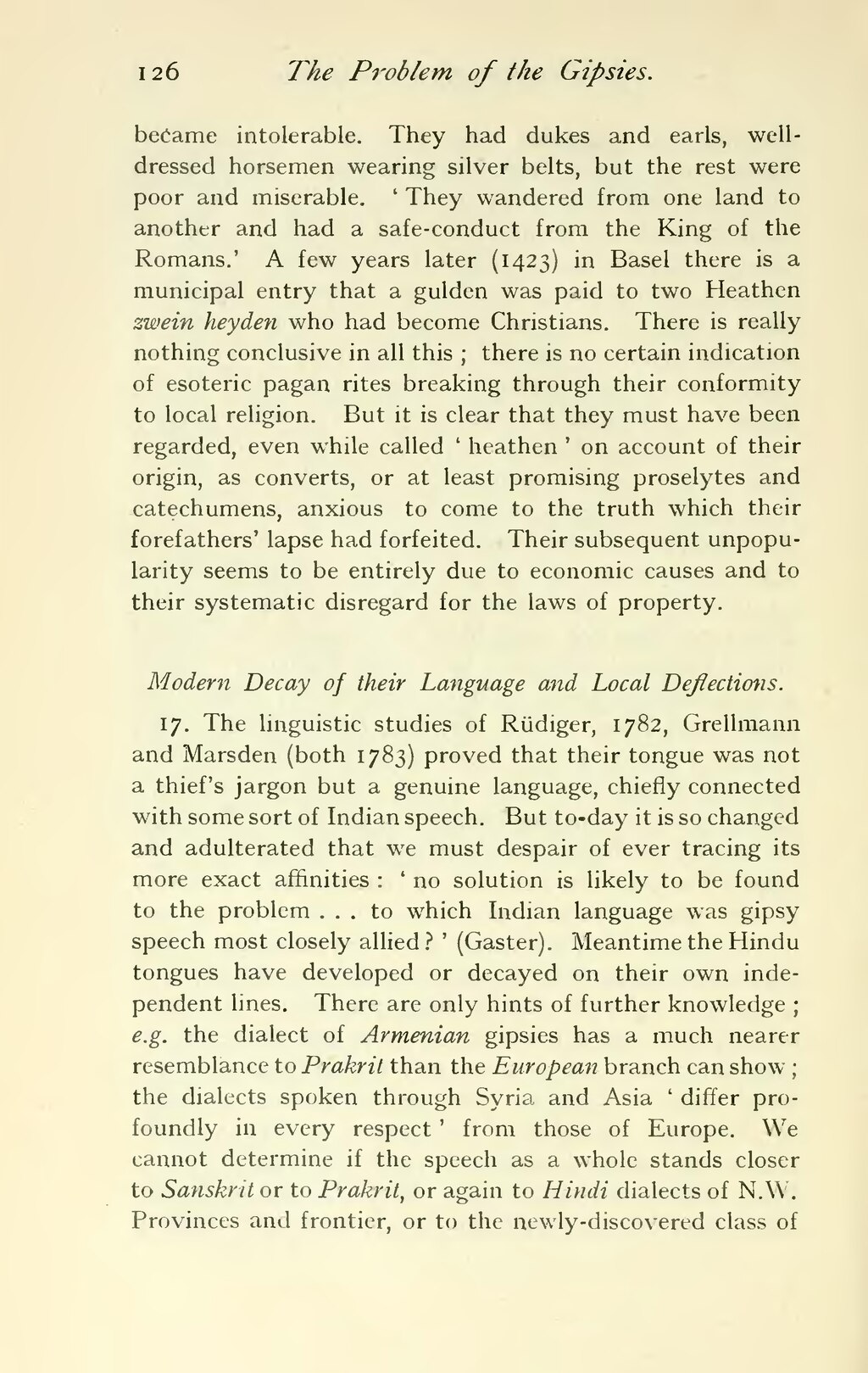became intolerable. They had dukes and earls, well-dressed horsemen wearing silver belts, but the rest were poor and miserable. 'They wandered from one land to another and had a safe-conduct from the King of the Romans.' A few years later (1423) in Basel there is a municipal entry that a gulden was paid to two Heathen zwein heyden who had become Christians. There is really nothing conclusive in all this; there is no certain indication of esoteric pagan rites breaking through their conformity to local religion. But it is clear that they must have been regarded, even while called 'heathen' on account of their origin, as converts, or at least promising proselytes and catechumens, anxious to come to the truth which their forefathers' lapse had forfeited. Their subsequent unpopularity seems to be entirely due to economic causes and to their systematic disregard for the laws of property.
Modern Decay of their Language and Local Deflections.
17. The linguistic studies of Rüdiger, 1782, Grellmann and Marsden (both 1783) proved that their tongue was not a thief's jargon but a genuine language, chiefly connected with some sort of Indian speech. But to-day it is so changed and adulterated that we must despair of ever tracing its more exact affinities: 'no solution is likely to be found to the problem … to which Indian language was gipsy speech most closely allied?' (Gaster). Meantime the Hindu tongues have developed or decayed on their own independent lines. There are only hints of further knowledge; e.g. the dialect of Armenian gipsies has a much nearer resemblance to Prakrit than the European branch can show; the dialects spoken through Syria and Asia 'differ profoundly in every respect' from those of Europe. We cannot determine if the speech as a whole stands closer to Sanskrit or to Prakrit, or again to Hindi dialects of N.W. Provinces and frontier, or to the newly-discovered class of

